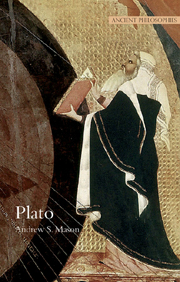Preface
Summary
This book aims to present Plato's thought to readers with no previous knowledge of it. In line with the general aims of the Ancient Philosophies series, it is written with senior undergraduates and first-year graduate students particularly in mind, but I have tried to make it accessible to a wider readership as well. No knowledge of philosophy is assumed, but I have sometimes referred to contemporary philosophical issues, so that readers who are familiar with them can see how Plato's thought relates to them.
No introduction can be a substitute for reading Plato's own works. This is true of every philosopher worth studying, but it is particularly true of Plato, since his dialogues are not only expositions of philosophical ideas, but also displays of philosophy in action; they aim to draw the reader into a philosophical discussion. This book concentrates on presenting major ideas that Plato puts forward in his works. (That these ideas can reasonably be seen as Plato's own is argued in Chapter 1.) In doing so, however, it reveals only one aspect of Plato; only by actually studying the dialogues can we appreciate Plato's thought as a whole.
Because of this focus on Plato's central ideas, I have not said much about those dialogues that seem not to reach definite conclusions, but, rather, aim to depict the process of enquiry.
- Type
- Chapter
- Information
- Plato , pp. vii - viiiPublisher: Acumen PublishingPrint publication year: 2010



